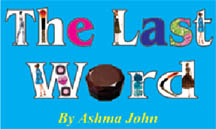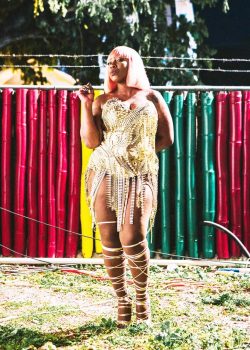I like to consider myself to be a true and dedicated Spice fan. Earlier this year when she came to Europe to perform, I begged my husband to drive me four hours away  from our home just to see her and when she didn’t appear at the club up until 4 am, I became hysterical when he wanted to leave. My husband couldn’t comprehend my disappointment at not getting to see her. He promised we would go to the next dancehall show.
from our home just to see her and when she didn’t appear at the club up until 4 am, I became hysterical when he wanted to leave. My husband couldn’t comprehend my disappointment at not getting to see her. He promised we would go to the next dancehall show.
Spice has always been my favourite dancehall singer for several reasons and it’s difficult for some to understand why I’m so fascinated by her. I believe it is the sense of liberation I feel when listening to her raunchy lyrics, which make it feel okay for persons to embrace their sexuality. She is to me what Lady Saw and Tanya Stephens are to others – a lyrical escape to comfortably embracing all of our femininity without guilt.
You see, growing up in the Caribbean, I always felt that women were made to feel dirty if they were interested in openly discussing sex or even simply choosing to dress in a provocative, sassy way. Most women, myself included, concealed their femininity for fear of judgment and shame as they were raised to believe that reticence when it comes to mode of dress and personal expression guarantees respect from men and

society at large. So-called modesty is a sort of yardstick still used to determine respect. However, even though such teachings suppressed us in more ways than one and heightened the prevalence of rape culture, the urge to openly relate was still there for many.
Spice’s constant trail of success doesn’t exist for existing sake but because women (mostly her fans) find her movement and purpose through her lyrics necessary as a take-home message.
Last weekend Vogue (the universal Bible of fashion) hailed Spice – real name Grace Hamilton – as the ‘Fashion Forward Queen of Dancehall’ after her performance at the recently held Red Stripe Reggae Sumfest. The writer spoke highly of her tongue-in-cheek take on feminism, her eccentric style and her artistic capabilities as regards defying gender stereotypes through her music especially in her hit song “Like a Man”. Though the writer erred in failing to highlight her politically-based rap and socially-charged lyrics in her freestyle performance, the coverage was monumental for female Caribbean dancehall artists who are often outnumbered by men and bullied into silence for their opinions.
It was a pleasure to see a curvy black Caribbean woman grace the online version of Vogue. However, it is necessary to remember that not all members of society appreciate how dancehall music is influencing women to identify with all aspects of themselves.
Ishawna, another raunchy Jamaican dancehall singer who is now known for her sexually-charged lyrics, especially her hit song “Equal Rights” was watered down at Dream Weekend mostly by arrogant and fragile men. Male Jamaican dancehall stars have always been at odds with Ishawna’s lyrics as most believe they take away from their masculinity and belittle them.
It would be safe to say that even with something as minor as a stage performance and an online Vogue article most miss the true essence of the important messages behind the lyrics and although the industry seems to be opening up to varying takes on dancehall it still remains one that is hostile towards women and their opinions and fails to acknowledge the power they may truly hold.
Today I leave you with one of my favourite quotes from Nigerian writer Chimamanda Ngozi Adichie: “Of course I am not worried about intimidating men. The type of man who will be intimidated by me is exactly the type of man I have no interest in.”
As humans, we must constantly remind ourselves to thrive despite other people’s opinions. We must respect our talents and our uniqueness and we should allow others to express theirs too. It’s the only way we can build better functioning societies.
www.online-runway.com
http://instagram.com/theonlinerunway





